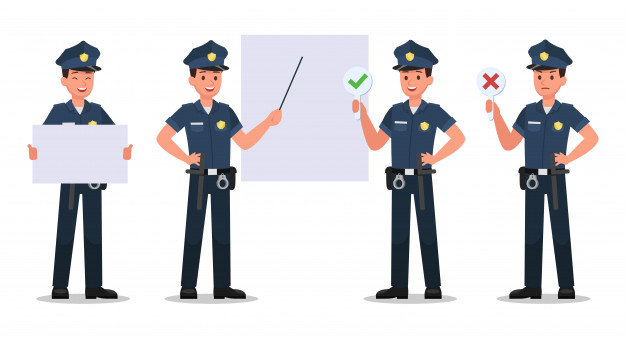Updated on October 31, 2025 10:32:41 AM
The term execution of a decree refers to the process for enforcing or giving effect to the judgment, decree or order of the court. The execution is the mechanism though which the decree holder realises the fruits of the decree ordered by the court. It comes to a close when the decree holder gets the relief awarded to him by the court.
The decree holder is the person in whose favour a decree has been passed, and the judgment debtor is the person against whom a decree has been passed.
The Sections 36 to 74 of the Civil Procedure Code, 1908 (CPC), lay down the basic legal framework for execution of decrees and orders.The Order 21 Rules 1 to 106 provides for the procedural details in regard to execution under CPC.Article 135 & 136 of the Limitation Act, 1963 put the limitation period of enforcement of a decree. The former is concerning a decree involving mandatory injunction ( three years) and the latter any other decree ( twelve years).
A decree can be executed by either the court which passed it or the court to which it is sent for execution.
The term ‘court which passed the decree’ means the ‘court of first instance’ in case of a decree of that court or the appellate decree of an appeal court. If a court of first instance ceases to exist or ceases to have jurisdiction to execute the decree, the court which would have jurisdiction at the time of execution of the decree can execute it.
The ‘court which passed the decree’ can send the decree for execution to another court either of its own motion or on the application of the decree holder if the judgment debtor resides or doing business or his property situates at the jurisdiction of another court. A decree can also be executed simultaneously at different places when the property of the judgment debtor situates in different locations.
No notice is generally issued to the party against whom execution is applied for. But in the following cases the court executing the decree shall issue a notice to the opposite parties, under Order 21 Rule 22 of the CPC.
The object of notice under the Rule 22 is to give the judgment debtor an opportunity to show why the execution should not be proceeded with. No notice is needed when the transfer of the right to execution is by operation of statutory laws.

The executing (transferee) court can stay execution for a reasonable time. Such a stay is granted to enable the judgment debtor to apply to the (transferor) court which passed the decree or an appellate court for obtaining an order to stay execution or for any other order relating to the decree or execution. The transferee court can allow a temporary stay but the transferor court can grant an absolute stay.
The stay application can be filed when there exist claim petitions in which the judgment debtor and the decree holder have to mutually adjust claims between them, in some other pending suit.
The decree holder can choose a particular mode for executing a decree. But the court has discretion to disallow execution against the person and his property simultaneously.
The following are the important modes of execution:-
One mode of execution of a decree for payment of money, exceeding Rupees two thousand, is arrest and detention of the judgment debtor in a civil prison.
When decree holder files an application along with an affidavit stating the grounds for arrest and detention, the court will issue a notice to the judgment debtor to appear before the court on a day and show cause why he should not be committed to civil prison. No notice as above is required if the judgment debtor is likely to abscond or leave the local jurisdiction of the court.
If judgment debtor appears, pleads and prove he does not have any means to pay the amount, he will not be arrested. When he appears what the decree holder is required to prove is that the judgment debtor has or had, since the date of the decree, the means to pay the decree amount or some substantial portion of it and he refused or neglected to pay.

One mode of execution of a decree for payment of money, exceeding Rupees two thousand, is arrest and detention of the judgment debtor in a civil prison.
When decree holder files an application along with an affidavit stating the grounds for arrest and detention, the court will issue a notice to the judgment debtor to appear before the court on a day and show cause why he should not be committed to civil prison. No notice as above is required if the judgment debtor is likely to abscond or leave the local jurisdiction of the court.
If judgment debtor appears, pleads and prove he does not have any means to pay the amount, he will not be arrested. When he appears what the decree holder is required to prove is that the judgment debtor has or had, since the date of the decree, the means to pay the decree amount or some substantial portion of it and he refused or neglected to pay.
Attachment and sale of property can be done under execution of a decree. An attachment is an order prohibiting and restraining the defendant from transferring the attached property or from creating any charge over such property by sale / gift or otherwise.Any private transfer of attached property is void to the extent it creates new rights or liabilities. But a transfer as per an agreement executed prior to the attachment is legally valid.
Attachment is being done to give notice to the judgment debtor not to alienate the property and the public not to buy it. Any property, which is not liable to be attached under the law, can be attached. Some properties cannot be attached, as per Section 60 of the CPC. Moveable property should be attached by actual seizure. If the property thus seized is subject to speedy and natural decay the attaching officer may sell the property. Agricultural produce is to be attached by affixing a copy of warrant of attachment on the land on which such crops are grown or on the floor where the grain is stocked
The decree holder can reach the debtor who owes any debt to the judgment debtor (a Garnishee is a debtor’s debtor) by filing an application along with an affidavit to the court. The court can issue an order asking him to pay the amount to the court if he is staying within the court’s jurisdiction. Otherwise the case has to be transferred to the district court of that area for enforcing the payment. If Granishee disputes his liability in the decree the dispute needs to be tried as if it were an issue in the suit.
Salary or allowance of an official of the government, Company, Government owned Corporation, Railway or Local Authority can be attached by a court order as provided for by law. The disbursing officer of salary, on receiving a court order, shall withhold and remit the installment of salary to the court. If the attachable portion of the salary of the official is remitted to a court in pursuance of a previous court order, the officer shall return the subsequent order received from another court with a full statement of particulars to the latter court.
The portion of salary that can be attached in any decree other than the maintenance decree is arrived at by excluding the first one thousand rupees and the two third of the remainder from the total salary. Here the salary means the total monthly emoluments, excluding any allowance declared exempted from attachment.Attachment of salary of the private employees is possible by an order of the court.
Attachment of property belonging to a partnership firm can be made only when the decree is against the firm or against the partners in the firm as such. However the court can charge the interest of one partner in the firm if the decree is against him. If decree is against a firm, the execution is possible against any property of the partnership or anyone admitted on the pleadings as a partner or anyone who failed to appear before the court on serving summons. No partner can be made liable unless he is served with a summons to appear and answer.
Parties to the suit and other third parties can raise objections against attachment of property in case any interest of such party is defeated.
The parties to the suit can file application under Section 47 of the CPC whereas the third parties can file either a suit for claims or an application under Order 21 Rule 58 of the CPC. The court shall hear the person, adjudicate upon the claim and allow/disallow it. When a claim petition is dismissed it cannot be restored under Order 9 Rule 13 of the CPC, but it can be restored under Section 106 of the CPC.
Any person, who has some right, title or interest in the attached property at the time of attachment, may lodge a claim or raise an objection against attachment. A claim petition may be filed in the executing court which attaches the property.
The court is bound to order sale of property when a property is attached and a party files an application to order sale. The court has authority to sell a portion of the property of the judgment debtor necessary to satisfy the decree. No sale beyond the decretal amount is permissible. Sale is to be done by the officer of the court by public auction alone.
The decree holder should apply for sale of the property in form 56 along with draft sale proclamation. Proclamation should be made after issuing notice to the judgment debtor. The object of issuing a proclamation is to give notice to intending purchasers to know what is to be sold and the names of the parties whose right, title and interest in it are to be sold. After proclamation the sale takes place after 15 days in case of immoveable property and 7 days in case of moveable property, a failure of which will make the sale void.
The application should include property to be sold or portion thereof, revenue assessed on the estate, encumbrances to which property is liable, amount to which sale is ordered, valuation of both parties and other material things. Proclamation should be published in a local news paper or beat of drums.
Decree holder should not buy the property without permission of the court. The mortgagee or the officers of the court also cannot bid at the sale.

The court can postpone sale in order to allow time for the judgment debtor to raise decretal dues by private alienation of property such as sale, mortgage, lease etc. The court can issue certificate to mortgage, lease or sale, if applies for it.
A person having any interest (the term ‘interest’ has a wide import) on the property can apply for setting aside the sale, under Order 21 Rules 89 to 91 of the CPC, on the following grounds:-
Such an application has to be made within the limitation period of 60 days only. The pre-sale irregularities can be remedied under Section 47 of the CPC.
Immediately after concluding the process of sale, the person declared to be the purchaser must deposit 25 per cent of the purchase money. The balance amount must be paid within 15 days from the date of the sale, the failure of which will vitiate the sale.
When no application to set aside the sale is filed in the court, the sale becomes absolute when the court makes an order of confirmation. If sale is set aside by the court, the purchaser of the property will get the purchase money.
When sale becomes absolute the court shall grant purchase certificate specifying the property and the name of the purchaser. Issue of a certificate is a ministerial act. Purchaser’s title relates back to the date of sale and not the date of confirmation of the sale.
Sometimes the law and the legal framework can get confusing and difficult to understand, especially when the issue is regarding a dispute related to family property. In such a scenario, one may not realize how to determine the legal issue, the area to which the issue relates to, whether the issue requires going to court and, how the court procedure works. Seeing a lawyer and getting some legal advice can enable you to comprehend your choices and can give you the certainty to enable yourself to determine your legal recourse.
An experienced property attorney can give you expert advice on how to handle your property issue owing to his years of experience in handling such cases. An experienced property lawyer is an expert on the laws and can help you avoid significant mistakes that may cause financial harm or will require future legal proceedings to correct. Thus, by hiring an attorney a person can make sure that he can avoid delay and get your share in the property as quickly as possible.
If the judgment debtor resists obtaining of possession of the property in sale under execution by the court without just cause, the decree holder or auction purchaser can make an application to the court. The court can detain the person in civil prison for a term of not more than thirty days. The court can direct the decree holder or purchaser be put in possession of the property as well.

Disclaimer: The content provided on this site is intended for informational purposes only. Accessing or utilizing this site and its materials does not establish an attorney-client relationship. The information contained herein does not constitute legal or professional advice and should not be relied upon as such. It is not a substitute for obtaining legal counsel from a qualified attorney licensed in your jurisdiction.